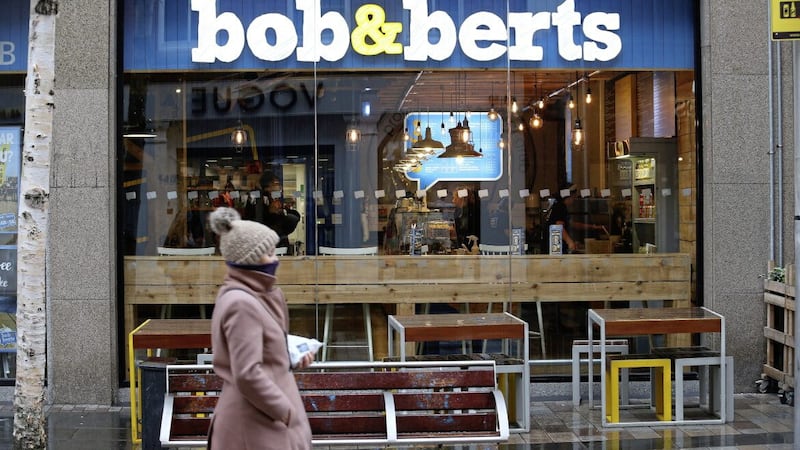ECONOMIC conditions in Northern Ireland are going to get worse before they get better, a leading economist has warned, as the accelerated spread of the coronavirus threatens a global recession.
Richard Ramsey’s comments came as the bank published its latest set of sluggish economic data for the north for the month of February.
Ulster Bank’s purchasing managers index (PMI) for February found that despite some outward soundings of positivity following the restoration of the Executive, last month marked a solid decline in private sector output here.
[ ‘Black Monday' for traders as FTSE 100 collapses more than 8%Opens in new window ]
Business activity has now fallen on a monthly basis throughout the past year, with the north the only UK region to see a drop in output during February.
Based on the responses of 200 private companies across the manufacturing, construction, retail and services sectors, the survey is considered a reliable and up to indicator on the state of the north's economy.
It suggested that rates of decline in output and new orders quickened slightly from the start of the year, while business confidence also softened.
Employment remained one longstanding positive, with the indicator increasing for the third month running and to the greatest extent since November 2018.
With the impact of the coronavirus yet to feed into the PMI in a meaningful way, Richard Ramsey warned that economic conditions in the north will likely deteriorate.
Analysing February’s data, he said that in terms of business sentiment, the positive outlook had broadly been maintained across all sectors since January.
“However, despite this, tangible signs of improved performance remain thin on the ground and confined to a pick-up in employment growth, which saw Northern Ireland firms increase their staffing levels at the joint-fastest rate (alongside London) of the UK regions.”
Although it topped the UK table for employment, the north remained at the bottom for new orders.
The economist said the pace of decline in output remained significant, marking the twelfth successive month of deterioration.
New orders posted a marginal decline with some firms reporting that contracts coming to an end are not being replaced.
“Domestic demand is on the rise but the fall in export orders continued for a thirteenth month,” continued the chief economist.
“Brexit uncertainty is cited as deterring some customers. That said, other firms are benefiting from increased demand from the Republic of Ireland which continues to enjoy strong economic growth.
“Since the February survey was conducted the economic headwinds facing the global, national and regional economies have intensified.
“The accelerated spread of the coronavirus beyond China into Europe, the Middle-East and the Americas threatens a global recession,” he said.
“China’s manufacturing PMI signalled its deepest contraction on record. This has severely disrupted global supply chains with the hospitality, tourism and airline industries hit by a slump in demand.
“Indeed, one leading UK regional airline has gone into administration. Economic conditions for all economies, including Northern Ireland, are expected to get worse before they get better.”








